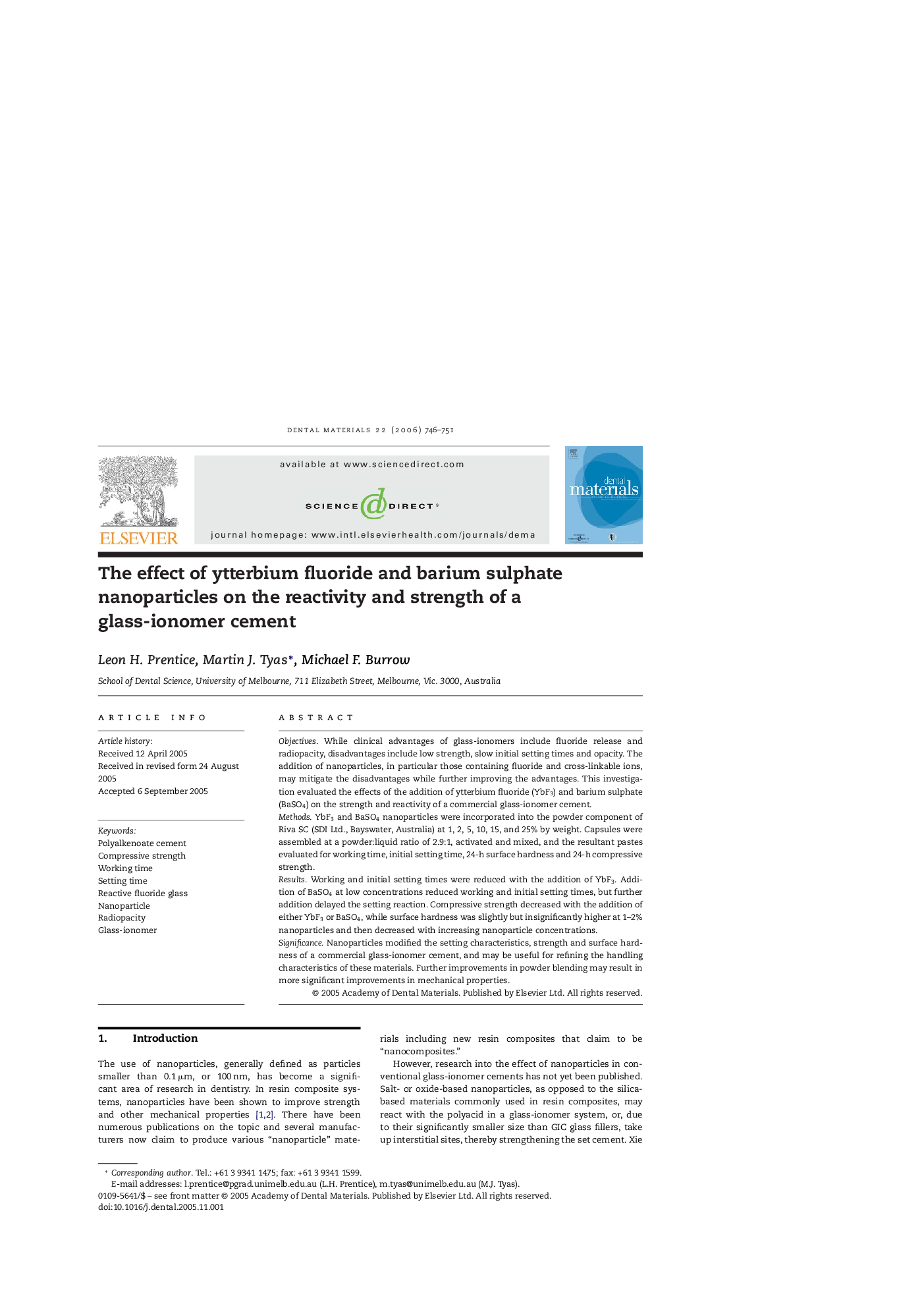| Article ID | Journal | Published Year | Pages | File Type |
|---|---|---|---|---|
| 1423177 | Dental Materials | 2006 | 6 Pages |
ObjectivesWhile clinical advantages of glass-ionomers include fluoride release and radiopacity, disadvantages include low strength, slow initial setting times and opacity. The addition of nanoparticles, in particular those containing fluoride and cross-linkable ions, may mitigate the disadvantages while further improving the advantages. This investigation evaluated the effects of the addition of ytterbium fluoride (YbF3) and barium sulphate (BaSO4) on the strength and reactivity of a commercial glass-ionomer cement.MethodsYbF3 and BaSO4 nanoparticles were incorporated into the powder component of Riva SC (SDI Ltd., Bayswater, Australia) at 1, 2, 5, 10, 15, and 25% by weight. Capsules were assembled at a powder:liquid ratio of 2.9:1, activated and mixed, and the resultant pastes evaluated for working time, initial setting time, 24-h surface hardness and 24-h compressive strength.ResultsWorking and initial setting times were reduced with the addition of YbF3. Addition of BaSO4 at low concentrations reduced working and initial setting times, but further addition delayed the setting reaction. Compressive strength decreased with the addition of either YbF3 or BaSO4, while surface hardness was slightly but insignificantly higher at 1–2% nanoparticles and then decreased with increasing nanoparticle concentrations.SignificanceNanoparticles modified the setting characteristics, strength and surface hardness of a commercial glass-ionomer cement, and may be useful for refining the handling characteristics of these materials. Further improvements in powder blending may result in more significant improvements in mechanical properties.
